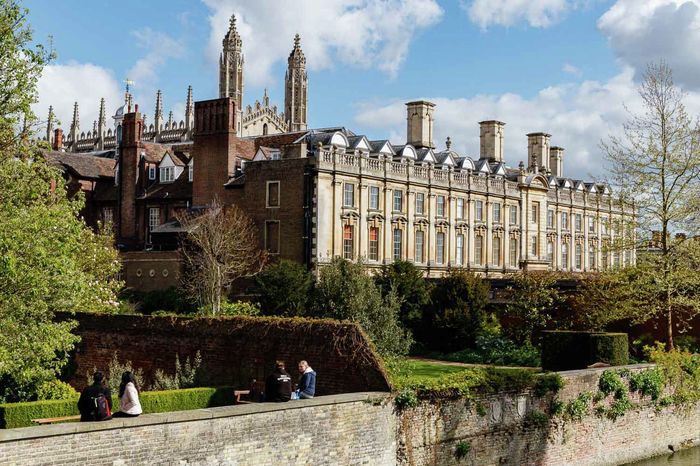EU students voice concern over loss of home fee status
In light of government confirmation that EU students will be charged international fees for courses starting from the 2021/22 academic year, Varsity spoke to several student representatives about the potential impact of this decision

In a statement at the end of June, Michelle Donelan, the Minister of State for Universities, announced that EU, other European Economic Area (EEA) and Swiss nationals will no longer be eligible for home fee status for courses starting in the 2021/22 academic year.
Students from these areas will also no longer be eligible for undergraduate, postgraduate and advanced learner support from Student Finance England.
This change will not affect students starting courses in the 2020/21 nor EU, other EEA and Swiss nationals benefitting from Citizens’ Rights under the EU Withdrawal Agreement, EEA European Free Trade Agreement (EFTA) Separation Agreement or Swiss Citizens’ Rights Agreement. It also won’t apply to Irish nationals choosing to study in the UK.
This announcement comes after several years of uncertainty surrounding EU tuition fees after Brexit. Recent Varsity analysis of University admissions data showed that there has been a continuous decline of undergraduate applications to Cambridge from the EU since Brexit.
Prospective students from the EU declined from 16.1% in 2016 to 13.9% in 2017, marking the lowest number of absolute EU applicants since 2013. Numbers of undergraduate EU applicants have continued to fall since then.
Although the government announced that EU students were still eligible for home fee status in 2019, uncertainty remained amongst some students: only 6 out of 10 EU respondents to the 2019 International Student Survey were aware of their ‘naturalised’ fee status. Furthermore, 36% of EU students said they were less likely to study in the UK because of Brexit.
Despite this decline, EU students make up a significant portion of Cambridge applicants, comprising 12.5% of undergraduate applications and 17.4 % of postgraduate applications in 2019. In 2019, EU countries like Germany, France and Italy were among the countries providing the highest number of Cambridge applicants outside of the UK.
However, a report by London Economics for the University and College Union predicts that, following the Covid-19 pandemic, universities in the UK will be hit by a £2.6 billion shortfall in the 2020/21 academic year. Approximately £350 million of this loss will be due to a fall in EU student recruitment, which the report estimates will fall by 47 percent.
The analysis also looks at the impact of the economic downturn on student behaviour and predicts that 231,895 potential applicants will no longer enrol in UK higher education in 2020/21, which includes 28,410 fewer EU students. Furthermore, the report predicts that Oxbridge will be hit the hardest by a decrease in income from tuition fees because they are among the most reliant on international students.
Other estimates predict that the number of EU applicants to UK universities will decrease by nearly 60%.
In light of these circumstances and the recent announcement, several student societies have voiced concern over the future of EU students in the UK.
All the societies that responded to Varsity’s enquiry noted that there was likely to be a large decrease in the number of students from their respective country applying to Cambridge.
Various reasons for this were cited but by far the most prominent was the added cost of studying in the UK. The German Society stated that in Germany, “where education is free for all, students are not used to paying large amounts for education [...] most public German scholarships are structured in a way that they fund a maximum of €10,000 Euros fees, which is often close to the current EU fees.
“As this (the scholarship) won’t change, while fees will skyrock due to the introduced changes, I am certain that we will see significantly lower application rates from Germany in the future.”
The Romanian society expected a similar result as “very few can pay the international fees.” This will mean “a shift to Denmark, Netherlands and Germany for people staying in Europe and more applicants to US Universities where the cost with a bursary is less than that for the UK.”
It was a similar story for the Polish society, who stated that as “the vast majority of Polish students need to self- or family-fund their studies, rely on help from NGOs, university and college bursaries, student loans, or combinations of all. Increasing the fees would lead to these people no longer being able to study in the UK, let alone at Cambridge - one of the country’s most expensive cities to live in.”
“As there are no other funding alternatives available, this will be a full stop for any prospective applicants. In fact, many of the students already preparing for the application now face uncertainty topped with the disheartening awareness that even if they get in - they might not be able to begin their studies due to financial hardship.”
The Hungarian Society, who hosted an access event for high school students shortly after the government announced their decision, noted the “immense disappointment” of the students. They pointed out that “the uncertainties surrounding Brexit have already brought a steady decline in the number of Hungarian applicants, but we are now expecting a significant drop in numbers in the next application period.”
But amongst those who can afford the fees, some societies reported students being put off by the wider atmosphere of which the government’s recent announcement was only a further example. The Italian society said that students fear “that they won’t find a welcoming environment in the post-Brexit period. They are unwilling to come to the UK because they are not sure they will feel themselves at home while studying here.”
Similarly the Scandinavian Society thought their students “would rather go elsewhere, to a country which is genuinely welcoming to foreign students.”
Many expressed sadness at the government’s decision and felt that the university would suffer as a result. “Cambridge will be less able to attract EU talents, and in the long term this could affect its capacity to provide the excellent education we are benefiting from now. Also the ‘Cambridge experience’ will be poorer due to the decrease in the number of EU students [... ] the lower number of EU students will result in a poorer cultural exchange, which means less stimuli.”
One member of the Romanian Society predicted that “in a few years the Cambridge Romanian Society will cease to exist, as there won’t be enough Romanians left in Cambridge.”
Although there was widespread dismay at the decision, there was hope that the university was working on bursary and scholarship programmes to improve access after the decision comes into effect. The Polish society are taking matters into their own hands and “are preparing a variety of open letters and appeals, both for the Polish and UK governments, as well as organizational and access help and resources for current and prospective students.”
iCUSU, the Cambridge University Student Union’s international students’ campaign, also told Varsity that they are hoping to collaborate with the University and European student representatives to “discuss possible mitigation measures such as potentially implementing merit-based scholarships and increasing bursary funding for affected students.”
A University spokesperson told Varsity that “Cambridge benefits from the different experiences and perspectives of all its students, and EU students contribute significantly to the educational fabric of the University.” Therefore, “[t]he University will be considering how to respond to the barrier that higher fees may create for future students from lower income backgrounds.”
 News / Caius mourns its tree-mendous loss23 December 2025
News / Caius mourns its tree-mendous loss23 December 2025 News / Clare Hall spent over £500k opposing busway 24 December 2025
News / Clare Hall spent over £500k opposing busway 24 December 2025 Comment / The ‘class’ of Cambridge24 December 2025
Comment / The ‘class’ of Cambridge24 December 2025 Comment / Yes, I’m brown – but I have more important things to say22 December 2025
Comment / Yes, I’m brown – but I have more important things to say22 December 2025 Interviews / Politics, your own way: Tilly Middlehurst on speaking out21 December 2025
Interviews / Politics, your own way: Tilly Middlehurst on speaking out21 December 2025








